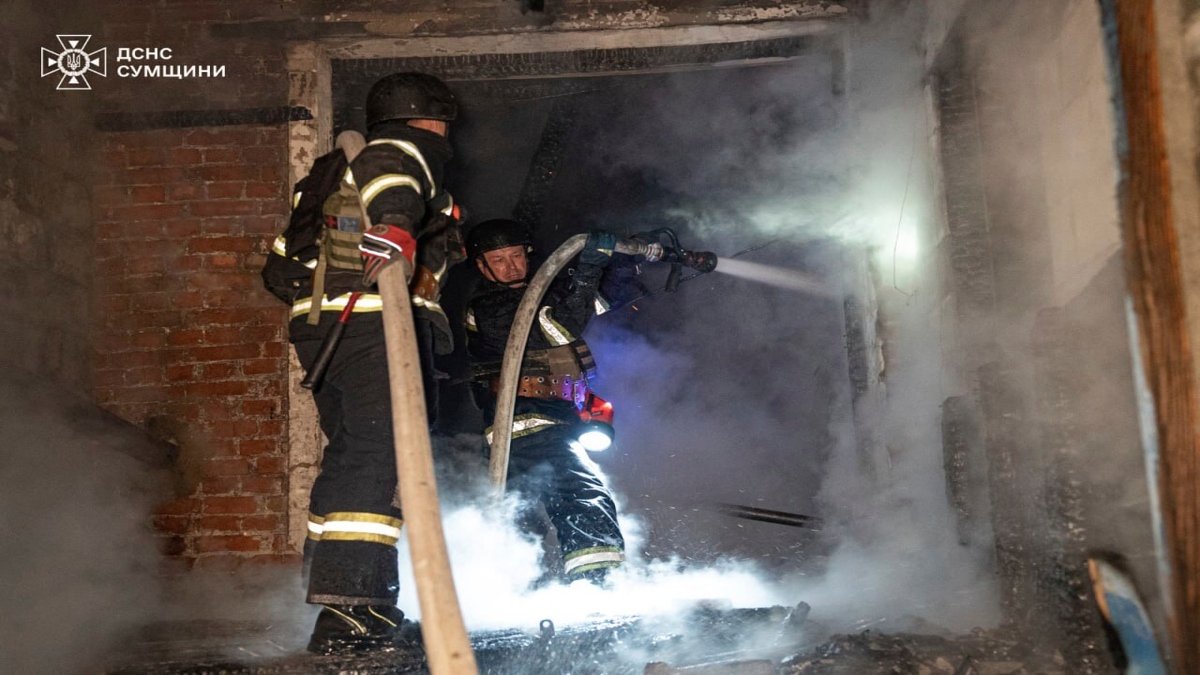Ukraine has claimed a modest but symbolically significant gain in the northeastern Sumy region, pushing back against Russia’s narrative of relentless advances along the front.
According to a New York Times report, citing independent battlefield monitors, the reclaimed village of Kindrativka — no larger than a few streets — is one of only two Ukrainian recaptures in the region this summer.
The success follows nearly a month of intense combat and comes as Ukrainian forces edge closer to other Russian-held settlements near the border.
For infantryman Knyaz, who spent 22 days dug into a foxhole near the village, every attempt to move forward felt like a potential one-way mission.
“Constant mortar shelling. Drones flying overhead,” NYT quoted him as saying, speaking under his call sign per military protocol. “
“Running and hiding under trees. Digging into the tree lines. Sleeping there. Living there.”
The Sumy counterattack offers a rare reversal in a conflict where Moscow has largely dictated the pace of battlefield shifts. Since May, Russian forces have captured between 170 and 215 square miles of territory each month, according to the report, citing DeepState, a group that tracks frontline changes.
Ukrainian commanders acknowledge they remain heavily outgunned and outnumbered, but see localized breakthroughs like this one as critical for undermining Russia’s momentum — and morale.
Ukraine’s limited advance in the Sumy region is more than a tactical win — it pushes back against Moscow’s message that its forces are advancing unchecked and that Kyiv should accept a land-for-peace deal.
According to the report, citing analysts, Russian troops, once pressing toward the regional capital, are now being pulled from Sumy to reinforce offensives elsewhere, including Donetsk.
“Russia’s Sumy operation has failed,” President Volodymyr Zelenskyy said Wednesday, citing “significant losses” and troop redeployments.
Kyiv’s advance relied on familiar tactics: relentless drone strikes, small-unit infantry raids, and elite airborne units.
Ukrainian commanders say this not only stalled Russian momentum but also weakened Moscow’s bargaining position.
“Why should we swap territories if we can get them back?” NYT quoted Maksym Skrypchenko of the Transatlantic Dialogue Center in Kyiv, as saying.
Russia has floated trading captured areas of Sumy for land in Donetsk — a proposal reportedly backed by US President Donald Trump. But any “land swap” now looks less tenable as Ukraine regains ground.
Still, the cost is high. Villages like Kindrativka, retaken in July, are reduced to rubble by Russian guided bombs.
“Even in dugouts with reinforced layers — when a guided bomb hits, it’s devastating,” Lieutenant Colonel Ihor of Ukraine’s 80th Air Assault Brigade told NYT. “It’s psychologically exhausting,” he added.
Despite localised success, Ukrainian forces remain outgunned. Lieutenant Anvar of the 225th Assault Regiment, once part of Ukraine’s brief offensive into Russia’s Kursk region, now fights to hold ground inside Sumy. His unit uses the same tactics Russia employed against them: isolate supply lines with drone strikes, then advance once the enemy is weakened.
On the battlefield, large mechanised assaults have given way to slow, stealthy movement. Infantry now operate in pairs, moving a few dozen yards at a time and digging in quickly to avoid detection by drones. Supplies often arrive by drone airdrop due to the lack of safe roads.
“The enemy sees every move and reacts instantly,” said Lieutenant Colonel Ihor.
In Kindrativka, soldiers from the 225th described the battle as brutal and draining. “The fear actually comes back when you rotate out,” said Sergeant Palma. “Silence means something’s wrong — it means the Russians might be crawling toward you.”
Even deep foxholes are no guarantee of safety, as drone operators grow more precise. Nearby, a drone operator from Ukraine’s 95th Air Assault Brigade practiced flying through narrow hoops, honing skills critical for frontline survival. “It’s not about speed, but control,” said Lieutenant Andrii.
Ukrainian commanders say Russia’s recent troop pullback from Sumy could open opportunities. New Russian units arriving in the region are reportedly less trained and poorly equipped. But Russia still holds one major advantage: powerful guided bombs that flatten trenches and bunkers alike.
For Ukrainians like Nataliya Biletchenko, the liberation of Kindrativka is bittersweet. Her colleague, a native of the village, celebrated its recapture — even though her home no longer exists.
“She was happy,” NYT quoted Biletchenko as saying.
“Still, she’s without a home. Without anything.”
With inputs from agencies
End of Article

)

